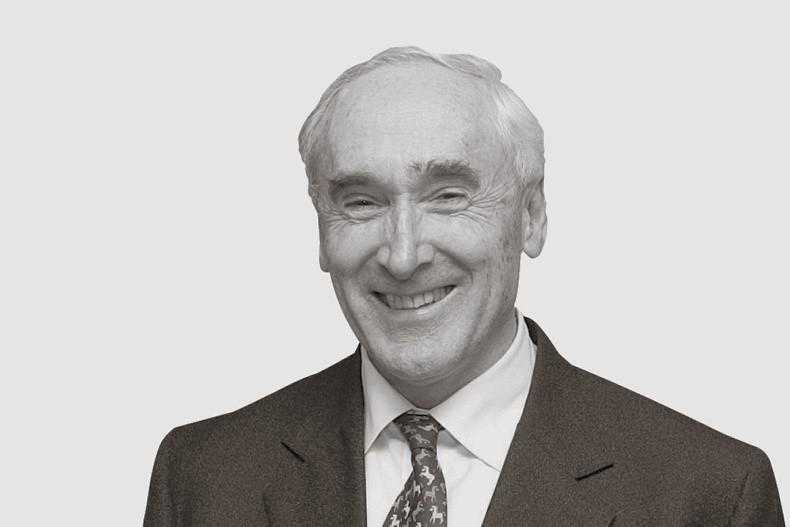The Teagasc National Farm Survey, which tracks farm income, has been one of the great impartial sources of in-formation on the varying fortunes of Irish farming since 1972. Over the last few years, the income element has been augmented by the addition of sustainability measurements covering environmental as well as social and innovation factors. These environmental and social points cover more than the normal hazy areas. Altogether, there are 129 points covered, some on the environmental side such as greenhouse gas emissions, biodiversity, ani-mal welfare, as well as how healthy the food produced is.
These proposed changes in the CAP are looking for swingeing reductions in pesticide, fertiliser and animal medicine use
While the social and innovation factors try and assess whether the farm has a future given the family structure, age group, etc, parallel with these indicators are obligations that are already in place and many more are on the way under the new Green Deal and Farm to Fork strategy. These proposed changes in the CAP are looking for swingeing reductions in pesticide, fertiliser and animal medicine use, while at the same time stating very clearly that the EU’s international competitiveness must be maintained, not surprisingly given the strength of Europe’s food and drink exports, with a surplus of over €22bn a year and employment spread around the community.
These figures are no longer internationally accepted as valid, as more information becomes available
But it’s hard to see how this environmentalism can be squared with unrestricted access to products from countries with totally different standards of production. The current make up of Irish agricultural production is about 75% bovine related, so how greenhouse gas emissions are measured, especially methane, is absolutely critical. In their presentation on Tuesday, Teagasc made it clear that they were measuring methane according to the UN’s Intergovernmental Panel on Climate Change’s 2016 figures. These figures are no longer internationally accepted as valid, as more information becomes available. A fortnight ago, Prof Ray Bates – Ireland’s most internationally-recognised climate scientist – demonstrated very clearly how this method hugely overestimated the negative effects of Ireland’s livestock industry. This is just one of the sustainability messages that has to get out there. Teagasc has the credibility to revise and promulgate the correct figures.
Read more
Over 40% of cattle farms considered vulnerable
Watch back - 2020 Vision: sustainability and agri-food, the next decade
The Teagasc National Farm Survey, which tracks farm income, has been one of the great impartial sources of in-formation on the varying fortunes of Irish farming since 1972. Over the last few years, the income element has been augmented by the addition of sustainability measurements covering environmental as well as social and innovation factors. These environmental and social points cover more than the normal hazy areas. Altogether, there are 129 points covered, some on the environmental side such as greenhouse gas emissions, biodiversity, ani-mal welfare, as well as how healthy the food produced is.
These proposed changes in the CAP are looking for swingeing reductions in pesticide, fertiliser and animal medicine use
While the social and innovation factors try and assess whether the farm has a future given the family structure, age group, etc, parallel with these indicators are obligations that are already in place and many more are on the way under the new Green Deal and Farm to Fork strategy. These proposed changes in the CAP are looking for swingeing reductions in pesticide, fertiliser and animal medicine use, while at the same time stating very clearly that the EU’s international competitiveness must be maintained, not surprisingly given the strength of Europe’s food and drink exports, with a surplus of over €22bn a year and employment spread around the community.
These figures are no longer internationally accepted as valid, as more information becomes available
But it’s hard to see how this environmentalism can be squared with unrestricted access to products from countries with totally different standards of production. The current make up of Irish agricultural production is about 75% bovine related, so how greenhouse gas emissions are measured, especially methane, is absolutely critical. In their presentation on Tuesday, Teagasc made it clear that they were measuring methane according to the UN’s Intergovernmental Panel on Climate Change’s 2016 figures. These figures are no longer internationally accepted as valid, as more information becomes available. A fortnight ago, Prof Ray Bates – Ireland’s most internationally-recognised climate scientist – demonstrated very clearly how this method hugely overestimated the negative effects of Ireland’s livestock industry. This is just one of the sustainability messages that has to get out there. Teagasc has the credibility to revise and promulgate the correct figures.
Read more
Over 40% of cattle farms considered vulnerable
Watch back - 2020 Vision: sustainability and agri-food, the next decade






 This is a subscriber-only article
This is a subscriber-only article










SHARING OPTIONS: